










































































































































































































































































































































































































































































































































































































































































































You never quite know where music is going to take you. Erich Korngold was born in old Vienna but ended up in Hollywood, and his gorgeous Violin Concerto embraces both worlds. Dvořák got the idea for his Seventh Symphony at a Prague railway station, but it grew into one of his most personal – and dramatic – masterpieces. And the young musicians of Big Noise Torry take a trip to Mexico as they join the RSNO for a very special performance of Arturo Márquez’s Danzón No2.
Danzón No2 [10’]
KORNGOLD Violin Concerto in D major Op35 [24’]
DVOŘÁK Symphony No7 in D minor Op70 [38’]
Philippe Quint Violin
Big Noise Torry
Royal Scottish National Orchestra
MUSIC HALL, ABERDEEN
Thu 13 Oct 2022 7.30pm
If viewing these notes at the concert, please do so considerately and not during performances. Please silence all mobile telephones and alerts, and refrain from taking photographs, without flash, until the end of each piece.

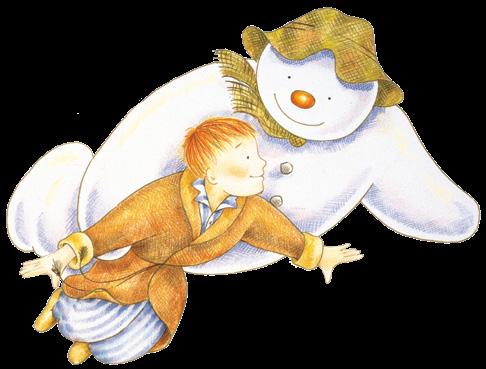



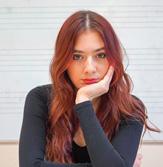

This evening the RSNO welcomes back conductor Christian Reif, who last performed with us in 2019 in a memorable concert alongside Nicola Benedetti. Tonight he is joined by another fantastic soloist, Philippe Quint, making his RSNO debut. Philippe was nominated for a GRAMMY Award for his recording of Korngold’s Violin Concerto, and I can’t wait to hear him perform the piece live.
Tonight we are joined by young musicians from Big Noise Torry for a special performance of Arturo Márquez’s Danzón No2, in partnership with Sistema Scotland. The performance provides an opportunity for students from Aberdeen to share the stage with professional musicians in front of our Season audience. I am so pleased to bring this collaboration to Aberdeen following recent side-by-side performances in Dundee and Edinburgh. I will never forget the first time I sat in the middle of a full symphony orchestra trying to perform the near-impossible task of playing a trumpet while smiling at the same time! I hope that tonight’s concert will be an experience the keen young musicians will never forget.
I hope that some of you had the chance to see the RSNO perform at the Haddo Arts Festival last weekend. If you missed the performance and screening of Yoyo & The Little Auk you can find the film on our website at rsno.org.uk/yoyo-the-little-auk
I hope you enjoy this evening’s concert.










































































Thomas Søndergård
MUSIC DIRECTOR Elim Chan
PRINCIPAL GUEST CONDUCTOR Neeme Järvi
CONDUCTOR LAUREATE Alexander Lazarev
CONDUCTOR EMERITUS Kellen Gray
ASSISTANT CONDUCTOR Stephen Doughty
CHORUS DIRECTOR, RSNO CHORUS Patrick Barrett
CHORUS DIRECTOR, RSNO JUNIOR CHORUS
FIRST VIOLIN
Maya Iwabuchi LEADER
Sharon Roffman LEADER 9 Lena Zeliszewska 10 ASSOCIATE LEADER Tamás Fejes ASSISTANT LEADER 11 Patrick Curlett ASSISTANT PRINCIPAL 12 Caroline Parry 13 Ursula Heidecker Allen 14 Lorna Rough 15 Susannah Lowdon 16 Alan Manson 17 Elizabeth Bamping 18
SECOND VIOLIN
Jacqueline Speirs 19 ASSOCIATE PRINCIPAL Marion Wilson ASSOCIATE PRINCIPAL 20 Harriet Hunter SUB PRINCIPAL 21 Nigel Mason 22 Wanda Wojtasinska 23 Paul Medd 24 Anne Bünemann 25 Sophie Lang 26 Robin Wilson 27 Emily Nenniger
Tom Dunn PRINCIPAL 29 Felix Tanner
ASSOCIATE PRINCIPAL VIOLA 30 Asher Zaccardelli
ASSISTANT PRINCIPAL 31 Susan Buchan SUB PRINCIPAL 32 Lisa Rourke SUB PRINCIPAL 33 Nicola McWhirter 34 Claire Dunn 35 Katherine Wren 36 Maria Trittinger 37 Francesca Hunt 38
Betsy Taylor ASSOCIATE PRINCIPAL 39 Kennedy Leitch ASSISTANT PRINCIPAL 40 Rachael Lee 41 Sarah Digger 42 Robert Anderson 43
DOUBLE BASS
Margarida Castro 44 ASSOCIATE PRINCIPAL Michael Rae ASSISTANT PRINCIPAL 45 Sally Davis 46 Aaron Berrera Reyes 47
Katherine Bryan PRINCIPAL 48 Helen Brew ASSOCIATE PRINCIPAL 49 Janet Richardson 50 PRINCIPAL PICCOLO
Adrian Wilson PRINCIPAL 51 Peter Dykes ASSOCIATE PRINCIPAL 52 Henry Clay PRINCIPAL COR ANGLAIS 53
Timothy Orpen 54
PRINCIPAL CLARINET Duncan Swindells 55 PRINCIPAL BASS CLARINET
David Hubbard PRINCIPAL 56 Luis Eisen ASSOCIATE PRINCIPAL 57 Paolo Dutto 58 PRINCIPAL CONTRABASSOON
Christopher Gough PRINCIPAL 59 Alison Murray ASSISTANT PRINCIPAL 60 Andrew McLean 61 ASSOCIATE PRINCIPAL David McClenaghan 62 Martin Murphy ASSISTANT PRINCIPAL 63
Christopher Hart PRINCIPAL 64 Marcus Pope SUB PRINCIPAL 65 Jason Lewis ASSOCIATE PRINCIPAL 66
Dávur Juul Magnussen PRINCIPAL 67 Lance Green ASSOCIATE PRINCIPAL 68 Alastair Sinclair 69 PRINCIPAL BASS TROMBONE
TUBA John Whitener PRINCIPAL 70
TIMPANI Paul Philbert PRINCIPAL 71
Simon Lowdon PRINCIPAL 72 John Poulter ASSOCIATE PRINCIPAL 73
With its infectious rhythms, its sultry melodies and the brilliant colours of its inventive scoring – which puts several of the orchestra’s musicians firmly in the spotlight – Danzón No2 by Mexican composer Arturo Márquez might well feel as though it’s transporting all of the get-up-and-go excitement of Latin music into the concert hall. Which is, more or less, exactly what its composer intended: in his own programme note, he describes Danzón No2 as his ‘very personal way of paying my respects and expressing my emotions towards truly popular music’. It’s hardly surprising that the piece has become the unofficial anthem of El Sistema music projects right across the globe, kicked off when the flagship Venezuelan Simón Bolívar Youth Orchestra showcased it during its European and American tours under Gustavo Dudamel in 2007.
Though it’s spun through the elegant workings of a symphony orchestra, and also imports certain classical sensibilities into its melodies and harmonies, Danzón No2 is popular music through and through. Its title refers to a form of dance music that began in Cuba, but grew to overwhelming popularity across the water in Mexico, swallowing urban grittiness in Mexico City to evolve into a seductive, sophisticated dance for couples to show off their choreographic prowess (and, it should be said, steamy passion too).
Márquez – probably Mexico’s most prominent contemporary composer – is the son of a mariachi player and the grandson of a folk musician, but knew relatively little about
danzón until he was immersed in the form in 1993 by two friends, both experts in salon dances. He soaked up the form further in Mexico City’s dance halls and through classic 1940s recordings, and grew to adore it, describing danzón as ‘a type of music full of sensuality and seriousness, a genre which old Mexican people continue to dance with a touch of nostalgia and a jubilant escape towards their own emotional world’. He went on to write no fewer than eight pieces using the title. No2 was commissioned by the National Autonomous University of Mexico, and premiered by the institution’s Philharmonic Orchestra in 1994. Since then, it’s become so widely loved in Mexico that it’s been dubbed the country’s second national anthem.
And you can understand why. After a slow, somewhat melancholy introduction – first for just clarinet and piano, then more richly for strings, all accompanied by the danzón form’s unforgettable 3+2 rhythm on clicking claves or rasping guiro – the piece erupts into a stomping, strutting melody, initially on strings, but soon thrown around between woodwind and brass. The quieter, more elegant opening music makes a brief return before the more confident material reasserts itself, now with the addition of a blazing, jazzy trumpet solo, driving the music relentlessly towards its euphoric conclusion.
© David Kettle

Chloe Stirton Maria Drelich
Sandra Janiszewska Victoria Tuckerson
Krista Varganova Matthew Duthie Rosita Vitkauskyte
Vasilisa Karmanova
Adele Tarvet
Logan Gerrard Lena Nadratowska
Max MacKenzie
Gabriella Sturo
Sintija Matuzaite
Kayla Kufre Nsiran Udo Jack Thomson
Lauren Bowman Adrian O’Brien-Gilbert
Erich Korngold may have been one of the finest and most influential Hollywood film composers of his day, but his musical career began as a child prodigy in the post-Wagner Vienna of Gustav Mahler and Richard Strauss. Aged just 19, a full decade after Mahler had declared him a genius and sent him to study with Alexander von Zemlinsky, he was already an acclaimed composer whose works had been premiered by some of the era’s greatest musical figures, including pianist Artur Schnabel, violinist Carl Flesch, and conductors Bruno Walter and Arthur Nikisch.
The ticket to Hollywood came in 1934, when Korngold was approached by the Austrian Hollywood director, Max Reinhardt. Reinhardt had admired Korngold’s 1920 opera, Die tote Stadt, and wanted the same lushly scored orchestral textures for a new film score arrangement of Mendelssohn’s incidental music to A Midsummer Night’s Dream. Korngold accepted the commission, the 1935 film was a great success, and the following year he signed an exclusive contract with Warner Bros and left for America – a timely move in light of the steady rise of the Nazi regime at home, and Korngold being Jewish.
The next decade saw Korngold focus his musical attentions entirely on film scores such as The Adventures of Robin Hood (1938). However, in 1945 he felt the concert platform calling him back, and wrote the Violin Concerto – the perfect vehicle through which to make such a comeback statement, concerto form being both indisputably rooted in the classical tradition, and completely incompatible with film. And to really hammer his ‘serious classical’ intentions home, Korngold not only cleaved faithfully to the form’s traditional threemovement quick-slow-quick shape (when plenty of composers didn’t), but also cast
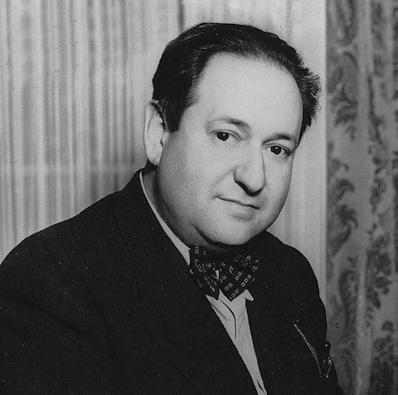
his work in D major – the same key as used in violin concertos by Beethoven, Brahms, Tchaikovsky, Prokofiev and Paganini. As a final stamp of classical authenticity, the concerto was dedicated to Mahler’s widow, Alma Mahler, and premiered by the great Jascha Heifetz.
A violinist of Heifetz’s stature was very much necessary too, because what is striking about the writing for the soloist is how unrelentingly virtuosic it is throughout, while the orchestra largely plays second fiddle. What’s more, the lion’s share is in the violin’s very highest registers, where the finger acrobatics are even harder, but where the instrument’s voice is most pure and silvery. It’s almost as if, having spent the past decade producing musical backdrops, to lift a single instrument prominently and triumphantly above an orchestra was exactly what Korngold’s composing muscles had been craving.
All that said, there’s no question that the concerto also sweeps a low bow of gratitude to Korngold’s Hollywood years; remotely so through the music’s emotional directness and unrelenting dramatic tension, and in the inclusion of the magical-sounding voices of vibraphone, xylophone, harp and celeste. Then also overtly, via all three movements containing material drawn from Korngold’s 1930s film scores. Although the great violinist Bronisław Huberman suggested that it was actually the other way around, and certainly it’s not implausible to imagine Korngold, drowning in Warner commissions but a Viennese composer at heart, gradually sketching out classical themes in his free moments, before giving them test runs in his film scores.
It’s Hollywood that hits the ear from the opening of the Moderato nobile, its theme borrowed from Korngold’s score to the
1937 film Another Dawn, but with the original forward-thrusting muscularity now transformed into something more expansive, lyrical and floating. The second theme is likewise a borrowing, this one the love theme from the 1939 film Juarez
The Romanze second movement, with its shimmering, harp-rich textures, draws on a theme from Korngold’s Oscar-winning score to Anthony Adverse (1936), but in more masked fashion, simply following the original’s rising contours.
If Korngold puts the violinist through their paces in the first two movements, the finale takes virtuosic wizardry to the Nth degree. Based on material from the 1937 adventure film The Prince and the Pauper, this delicious sprite’s-party-meets-peasant-stomp is technically a traditional theme and variations, but Korngold’s handling of it is anything but traditional, because rather than initially presenting the theme straight and unadorned, here the violin delivers it first as a massively embellished, high-octane fireworks show. Eventually a heroic statement from the horns ushers in a markedly softer passage. This culminates in a few truly magical bars of peaceful, soft floating, before exuberantly explosive chords set off a final fleet-footed dance to the finish line.
© Charlotte Gardner
If Bedřich Smetana (1824-1884) created Bohemian musical nationalism, Antonín Dvořák made it internationally popular. In England particularly, the Slavic exuberance and melodic charm of his music made him something of a celebrity. After a London performance of his Sixth Symphony in the summer of 1884, Dvořák wrote to his father:
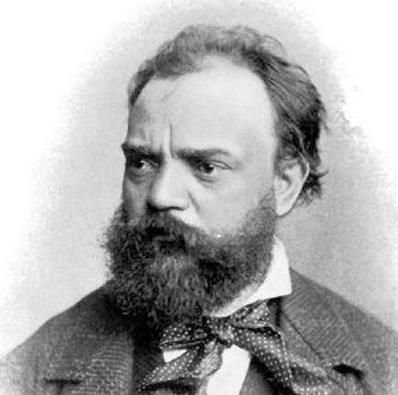
Yesterday I had my second concert in St James’ Hall where I again achieved the most splendid success! I cannot tell you how great is the honour and respect the English people here show me. Everywhere they write and talk about me and say that I am the lion of this year’s musical season in London!
Allegro maestoso
Poco adagio
Scherzo: Vivace
Finale: Allegro
Later that year, in response to a commission from London’s Royal Philharmonic Society –who had just nominated him as an honorary member – Dvořák began working on his Seventh Symphony with great enthusiasm. In December he told a friend,
Now I am occupied with my new symphony [for London], and wherever I go I have nothing else on my mind but my work, which must be such as will make a stir in the world and God grant that it may!
And indeed it did. Dvořák himself conducted the premiere at St James’ Hall in April 1885 and was once more delighted with its reception. He told a friend that English audiences had again welcomed him ‘heartily and demonstratively’, concluding that the symphony was ‘immensely successful’.
On the surface at least, the seventh is the least obviously Bohemian of Dvořák’s symphonies and it demonstrates the composer’s attempt to write a less overtly nationalistic work. It is undoubtedly influenced by the Third Symphony of his friend and mentor, Johannes
Brahms, a work Dvořák regarded as a towering masterpiece, and it shares with this symphony an overall darkness of mood. At the same time, not a line of it could have been written by anyone but Dvořák. Brahms provides a model for its structure and ambience, and the influence of Wagner can also at times be heard, but its character remains essentially Czech. Furthermore, it is a turbulent work that reflects both personal and patriotic struggle: Dvořák had recently lost his mother, as well as his eldest daughter some time before, and, like Smetana, was profoundly committed to the cause of Czech nationalism. As he told a friend during the composition of the work, ‘What is in my mind is Love, God, and my Fatherland.’
Over ominous murmurs in the depths of the orchestra, the first movement’s dark main theme gradually unfolds. The storminess intensifies, but a gently lilting woodwind melody, graceful and Brahms-like, provides richly lyrical contrast. The material is developed by Dvořák to great dramatic effect and, after the music builds to a powerful climax, there is a refrain of the opening themes, the first now played fff (very, very loud). There is another majestic climax but eventually the principal theme, again over dark rumblings, ebbs away into nothing.
After completing the exquisite Poco adagio (which he unaccountably referred to as an ‘andante’), Dvořák described his satisfaction to a friend:
Just today I have finished the andante of my new symphony and I was as blissful and happy in this work as I have ever been …
Accordingly, its opening is peaceful and prayer-like, a gently flowing clarinet melody creating a mood of cloudless calm. Gradually, however, tension builds and a stormy sequence
recalls the more anguished mood of the first movement. A glowing horn melody provides a degree of consolation, though it is only at the very end of the movement that the serenity of the opening is fully recaptured.
The cross-rhythms and passionate countermelodies of the Scherzo evoke a spirited Bohemian folk dance called the furiant. By contrast, the middle section (the so-called trio) is lighter and breezier, with snatches of Dvořák’s trademark birdsong. The sky darkens again for a reprise of the Scherzo, the violas sing out a sorrowful, Wagner-like melody and the last bars bring the movement to a vigorous, emphatic close.
Dvořák described the finale as reflecting the ability of the Czech people to resist oppression. It is, like the first movement, a tempestuous affair; however, whereas the opening movement fades into silence, the Finale’s conflict leads to a triumphant resolution. Introduced by cellos, horns and clarinet, the principal theme has nervous, yearning qualities, while the more positive second theme hints at the possibility of a joyful outcome. Nevertheless, the bulk of the movement is so stormy and oppressive that the unrestrained exuberance of its ending is doubly striking. Here, in imagination at least, the Czech nation proudly and defiantly asserts itself.
© Anthony BatemanOne of the most versatile and imaginative artists on the concert stage today, multiple GRAMMY Award-nominated American violinist Philippe Quint is internationally recognised for his unique approach to classical core repertoire, championing new music, rediscovering neglected works and creating a new format of docu-concert experience; multimedia journeys about the lives of Argentinean tango composer Astor Piazzolla and Charlie Chaplin. ‘Truly phenomenal’ is how BBC Music Magazine recently described him, adding, ‘Quint’s tonal opulence, generously inflected with subtle portamentos, sounds like a throwback to the glory days of Fritz Kreisler.’
With an award-winning discography of 17 commercial releases on Warner Classics, Naxos and Avanti Classics, Quint regularly appears with major orchestras and conductors worldwide at venues ranging from the Gewandhaus in Leipzig to Carnegie Hall in New York, while making frequent guest appearances
at the most prestigious festivals, including Verbier, Aspen, Colmar, Hollywood Bowl and Dresden Musikfestspiele.
Quint’s appearances in recent seasons have taken him to the London Philharmonic, Los Angeles Philharmonic, Chicago Symphony, Baltimore Symphony, Seattle Symphony, Detroit Symphony, Indianapolis Symphony, Houston Symphony, New Jersey Symphony, Minnesota Orchestra, Bournemouth Symphony, Staatskapelle Weimar, Orchestre National du Capitole de Toulouse, Royal Liverpool Philharmonic, Bilbao Orkestra Sinfonikoa, China National Symphony, Orpheus Chamber Orchestra, Komische Oper Berlin Orchestra and Leipzig’s MDR-Sinfonieorchester, performing under the batons of such renowned conductors as the late Kurt Masur and Bramwell Tovey, Edo de Waart, Andrew Litton, Tugan Sokhiev, Ludovic Morlot, James Gaffigan, Carl St Clair, Michael Stern, Vladimir Spivakov, Cristian Măcelaru, Kristjan Järvi, Krzysztof Urbański, Jorge Mester, Jahja Ling, Carlos Miguel Prieto, Tito Muñoz and Steven Sloane.
Philippe Quint plays the 1708 ‘Ruby’ Antonio Stradivari violin on loan to him through the generous efforts of The Stradivari Society.
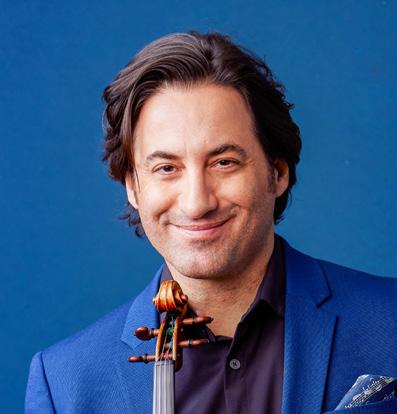
German conductor Christian Reif has quickly established a reputation for his natural musicality, technical command and leadership as an engaging communicator and outstanding orchestra builder.
Since the 2019-20 season, Reif has conducted the RSNO, Dallas Symphony, Ulster Orchestra, Romanian Radio Symphony, Aalborg Symphony, Fundación Excelentia in Madrid, North Carolina Symphony, San Antonio Symphony, Santa Barbara Symphony, Toledo Symphony, Colorado Springs Philharmonic, Orchestre National de Belgique, Orquestra Sinfónica Portuguesa in Lisbon, Stavanger Symphony, Orchestre National d’île de France, Hallé Orchestra, Gävle Symphony, Orchestre National de Lyon, Odense Symphony, Munich Radio Orchestra, Brno Philharmonic, New World Symphony and Kansas City Symphony.
During the pandemic, he took part in several live-streamed events, including conducting the Music Academy of the West’s Instrumental Fellows in their 2020 Remote Summer Learning Institute on a socially distanced performance of Haydn’s London Symphony No104. He also
appeared in live-streamed events presented by the San Francisco Symphony, New World Symphony, Lakes Area Music Festival, Long Beach Opera, New York Festival of Song and Musical America.
Reif was active on the piano throughout the pandemic, recording a series of at-home virtual ‘Songs of Comfort’ with his wife, soprano Julia Bullock, ranging from Carole King’s Up on the Roof to Schubert’s Wandrers Nachtlied.
From 2016 to 2019, Reif served as Resident Conductor of the San Francisco Symphony and Music Director of the San Francisco Symphony Youth Orchestra (SFSYO). His tenure culminated in a six-city European tour with the SFSYO, including performances at Vienna’s Musikverein, Berlin Philharmonie and Hamburg Elbphilharmonie. He was a Conducting Fellow with the New World Symphony from 2014 to 2016, and a Conducting Fellow at the Tanglewood Music Center in 2015 and 2016.
Reif’s enthusiasm for performing contemporary music has led to several world premieres, including Anahita Abbasi’s … within the shifting grounds … (a work commissioned by Reif and the SFSYO in collaboration with the International Contemporary Ensemble), Michael Gordon’s El Sol Caliente (a city symphony in honour of Miami Beach’s centennial), and concertos for DJ and orchestra performed at New World Symphony PULSE events where the concert hall was transformed into a nightclub.
Christian Reif studied with Alan Gilbert at the Juilliard School, where he completed his Master of Music in Conducting in 2014 and received the Charles Schiff Conducting Award. Prior to that, he studied with Dennis Russell Davies at the Mozarteum Salzburg, where he received a diploma in 2012. He was the winner of the 2015 German Operetta Prize, awarded by the German Music Council.

Formed in 1891 as the Scottish Orchestra, the company became the Scottish National Orchestra in 1950, and was awarded Royal Patronage in 1977. The Orchestra’s artistic team is led by Danish conductor Thomas Søndergård, who was appointed RSNO Music Director in October 2018, having previously held the position of Principal Guest Conductor. Hong Kong-born conductor Elim Chan succeeds Søndergård as Principal Guest Conductor.

The RSNO performs across Scotland, including concerts in Glasgow, Edinburgh, Dundee, Aberdeen, Perth and Inverness. The Orchestra appears regularly at the Edinburgh International Festival and the BBC Proms, and has made recent tours to the USA, China and Europe.
The Orchestra is joined for choral performances by the RSNO Chorus, directed by Stephen Doughty. The RSNO Chorus evolved from a choir formed in 1843 to sing the first full performance of Handel’s Messiah in Scotland. Today, the RSNO Chorus is one of the most distinguished large symphonic choruses in Britain. The Chorus has performed nearly every work in the standard choral repertoire, along with contemporary works by composers including John Adams, Howard Shore and Sir James MacMillan.
The RSNO has a worldwide reputation for the quality of its recordings, receiving a 2020 Gramophone Classical Music Award for Chopin’s Piano Concertos (soloist: Benjamin Grosvenor), conducted by Elim Chan; two Diapason d’Or awards for Symphonic Music (Denève/Roussel 2007; Denève/Debussy 2012) and eight GRAMMY Awards nominations. Over 200 releases are available, including Thomas Søndergård conducting Strauss (Ein Heldenleben, Der Rosenkavalier Suite) and Prokofiev (Symphonies Nos1 and 5), the complete symphonies of Sibelius (Gibson), Prokofiev (Järvi), Bruckner (Tintner) and Roussel (Denève), as well as further discs championing the music of William Grant Still (Eisenberg), Xiaogang Ye (Serebrier) and Thomas Wilson (Macdonald).
The RSNO’s pioneering learning and engagement programme, Music for Life, aims to engage the people of Scotland with music across key stages of life: Early Years, Nurseries and Schools, Teenagers and Students, Families, Accessing Lives, Working Lives and Retired and Later Life. The team is committed to placing the Orchestra at the centre of Scottish communities via workshops and annual residencies.
FIRST VIOLIN
Emily Davis
GUEST LEADER
Tamás Fejes
ASSISTANT LEADER
Patrick Curlett
Evgeny Makhtin Wen Wang Elizabeth Bamping
Joonas Pekonen
Lorna Rough
Tania Passendji Alan Manson Caroline Parry Eleanor Wilkinson Laura Ghiro Fiona Stephen
SECOND VIOLIN
Marion Wilson
ASSOCIATE PRINCIPAL Jacqueline Speirs Robin Wilson Paul Medd Nigel Mason Harriet Hunter Sophie Lang Kirstin Drew John Robinson Daniel Stroud Seona Glen Eddy Betancourt
VIOLA
Tom Dunn
PRINCIPAL
Felix Tanner Liam Brolly Claire Dunn Francesca Hunt Matthew Johnstone Nicola McWhirter David Martin David McCreadie Elaine Koene
Betsy Taylor
ASSOCIATE PRINCIPAL Kennedy Leitch Rachael Lee
Sarah Digger
Robert Anderson Susan Dance Miranda Phythian-Adams Niamh Molloy
DOUBLE BASS
Roberto Carrillo-Garcia
GUEST PRINCIPAL Margarida Castro Michael Rae Tom Berry Christopher Sergeant Brendan Norris FLUTE Katherine Bryan PRINCIPAL Janet Richardson PRINCIPAL PICCOLO
OBOE Adrian Wilson PRINCIPAL Peter Dykes Henry Clay PRINCIPAL COR ANGLAIS
CLARINET
Timothy Orpen
PRINCIPAL Harry Penny Gareth Brady
BASSOON
Guylaine Eckersley
GUEST PRINCIPAL Paolo Dutto PRINCIPAL CONTRABASSOON
HORN Christopher Gough
PRINCIPAL
Alison Murray Andrew McLean David McClenaghan Martin Murphy
TRUMPET
Jason Lewis
ASSOCIATE PRINCIPAL Ruby Orlowska
Paul Stone
GUEST PRINCIPAL Lewis Bettles Alastair Sinclair PRINCIPAL BASS TROMBONE
TUBA Jack Cullen
GUEST PRINCIPAL TIMPANI Paul Philbert PRINCIPAL
PERCUSSION
Simon Lowdon PRINCIPAL John Poulter Colin Hyson
HARP Pippa Tunnell
PIANO/CELESTE
Lynda Cochrane
Sistema Scotland is the charity that delivers the Big Noise model, running Big Noise programmes across Scotland. Its work is underpinned by the belief that all children and young people in Scotland have great potential, skills and talents. The charity also recognises that poverty and inequality in Scotland have a significant impact on the support and opportunities some children have to build their self-esteem, confidence and social networks. Sistema Scotland believes that music and nurturing relationships have a critical role to play in inspiring individuals, families and communities.
Big Noise Torry in Aberdeen began in 2015 and works with around 750 participants from babies to S3s. The programme is delivered in partnership with, and is primarily supported by, Aberdeen City Council.
Big Noise Torry works in partnership with Tullos and Walker Road primary schools in Torry and with Lochside Academy in Aberdeen. The programme delivers:
• in-school teaching and activities for nursery and early years pupils
• an after-school club for Primary 4s and up which now has four distinct orchestra groups

• weekly Little Noise sessions for babies, young infants and their carers; and
• a community orchestra for adults.
In addition to Big Noise Torry, Sistema Scotland runs programmes in Raploch & Fallin (Stirling), Govanhill (Glasgow) and Douglas (Dundee). A brand-new Big Noise programme started in Wester Hailes (Edinburgh) in spring 2022.

I am honoured and extremely proud to be Music Director of the RSNO. It is through the continued generosity of you, our friends, donors and supporters, that we can continue to achieve and realise the most ambitious goals of the Orchestra.
One of the wonders of the RSNO is how it brings high-quality music not only to concert halls, but to the wider community. From hospital settings to care homes, from our Astar app for families with newborns to our National Schools Concert Programme, our music touches so many lives in Scotland and beyond.
Your support is the cornerstone of all that we do, as it allows us to continually build and develop.
Thank you for being part of this wonderful Orchestra’s journey, as we adapt and grow towards a bright future.
Thomas Søndergård MUSIC DIRECTOR, RSNOThe RSNO Conductors’ Circle is an inspirational group of individual supporters at the heart of the RSNO’s Individual Giving programme. Our members’ annual philanthropic gifts enable us to realise the Orchestra’s most ambitious goals. Conductors’ Circle members support inspirational concert performances for our audiences alongside transformational education programmes in communities across Scotland, via our ground-breaking initiative Music for Life.
The relationship between the RSNO and Conductors’ Circle members involves exceptional levels of access to all aspects of Orchestra life. We design bespoke private events tailored to individual interests and passions, providing insight into the artistic process and bringing our supporters further into the RSNO family. Members of the Conductors’ Circle benefit from an intimate and long-lasting connection with the RSNO Artistic Team and particularly with RSNO Music Director Thomas Søndergård, Principal Guest Conductor Elim Chan and the many
renowned guest Conductors we are privileged to welcome to the RSNO each year.
The RSNO is very grateful for the continued support of its Conductors’ Circle: Ardgowan Charitable Trust Geoff and Mary Ball Sir Ewan and Lady Brown Stina Bruce Jones Ian and Evelyn Crombie Carol Grigor and the Trustees of Dunard Fund Gavin and Kate Gemmell Kenneth and Julia Greig Ms Chris Grace Hartness Kat Heathcote and Iain Macneil Bruce and Caroline Minto David and Alix Stevenson Eric and Karen Young
We would also like to thank those generous donors who wish to remain anonymous.
For more information on Individual Giving and becoming part of the Conductors’ Circle please contact Jenny McNeely at jenny.mcneely@rsno.org.uk

From musical activities in schools with the musicians of the future to working in community venues across Scotland, as a Chair Patron you are enabling RSNO musicians to explore the many facets of their art and the positive impact it has on people’s lives. Supporting an individual musician puts you at the heart of the RSNO family. You’re connected directly to the musicians on stage and get to enjoy privileged behind-the-scenes access. RSNO musicians truly appreciate our Chair Patrons and enjoy developing personal relationships with our supporters.
Assistant Conductor
Kellen Gray
The Solti Foundation Chair
First Violin
Maya Iwabuchi LEADER
Sharon Roffman LEADER
Dunard Fund Chair
Tamás Fejes ASSISTANT LEADER
The Bill and Rosalind Gregson Chair
Patrick Curlett
ASSISTANT PRINCIPAL
The RSNO Circle Chair
Alan Manson
The Hugh and Linda Bruce-Watt Chair
Elizabeth Bamping
The WL and Vera Heywood Chair
Ursula Heidecker Allen
The James and Iris Miller Chair
Lorna Rough
The Hilda Munro Chair
Second Violin
Sophie Lang
The Ian and Evelyn Crombie Chair
Viola
Tom Dunn PRINCIPAL
The Cathy & Keith MacGillivray Chair
Lisa Rourke SUB PRINCIPAL
The Meta Ramsay Chair
Francesca Hunt
The Rolf and Celia Thornqvist Chair
Cello Betsy Taylor
ASSOCIATE PRINCIPAL
The Maxwell Armstrong Chair
Kennedy Leitch
ASSISTANT PRINCIPAL
The David and Anne Smith Chair
Rachael Lee
The Christine and Arthur Hamilton Chair
Double Bass Michael Rae James Wood Bequest Fund Chair
With thanks to the Gregor Forbes Chair for their support of the RSNO Double Bass section
Flute
Katherine Bryan PRINCIPAL
The David and Anne Smith Chair
Helen Brew ASSISTANT PRINCIPAL
The Gordon Fraser Charitable Trust Chair
Oboe
Adrian Wilson PRINCIPAL
The Hedley Wright Chair
Peter Dykes
ASSOCIATE PRINCIPAL
Witherby Publishing Group
Charitable Trust Chair
Cor Anglais
Henry Clay PRINCIPAL
In memory of a dear friend, Fiona H
Bassoon
David Hubbard PRINCIPAL
The James and Morag Anderson Chair
Horn Christopher Gough PRINCIPAL
The Springbank Distillers Chair
Martin Murphy
ASSISTANT PRINCIPAL
The John Mather Trust’s Rising Star Chair
Alison Murray
ASSISTANT PRINCIPAL
Mr & Mrs Pierre and Alison Girard
David McClenaghan
The J & A Mitchell Chair
Trumpet
Christopher Hart PRINCIPAL
Ms Chris Grace Hartness
Marcus Pope SUB PRINCIPAL
The Nigel and Margot Russell Chair
Trombone
Dávur Juul Magnussen
PRINCIPAL
The Mitchell’s Glengyle Chair
Lance Green
ASSOCIATE PRINCIPAL
The William Cadenhead Chair
Timpani
Paul Philbert
Ms Chris Grace Hartness
Percussion
John Poulter
ASSOCIATE PRINCIPAL
The Dot and Syd Taft Chair
Library and Orchestra Assistant
Xander van Vliet
The Hilda Munro Chair
We would like to acknowledge the generous contribution of Mr Hedley Wright in supporting the RSNO Chair Patron Programme.
Our Learning and Engagement activity is structured around our Music for Life programme. From apps for babies to concerts and workshops for school children, and lunchtime concerts for older adults, the range of projects is vast. As a Patron, you will have access to our projects to bring you closer to the communities we serve across Scotland.
Neil and Nicola Gordon
Professor Gillian Mead, FRSE
Mr Maurice Taylor CBE
RSNO Principal Oboe, Adrian Wilson
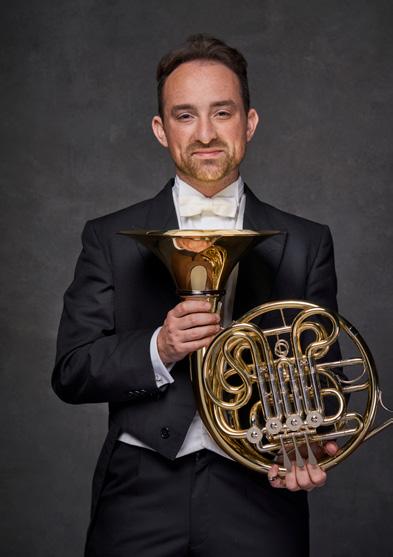
Witherby Publishing Group Charitable Trust
The RSNO is dedicated to bringing new works and outstanding new talent to audiences across Scotland. Our New Works Patrons contribute a significant legacy to orchestral music that extends beyond the RSNO, providing new music for orchestras and audiences around the world – for generations to come.
Susie Thomson
We are also grateful to those who give but wish to remain anonymous.
If you would like more information or would like to discuss how you can become part of the RSNO Family of Supporters, please contact Jenny McNeely, Head of Individual Giving and Partnerships, at jenny.mcneely@rsno.org.uk
We would like to thank all those who have donated to our new Play Your Part Appeal. The generosity of our supporters at this time is deeply appreciated.

Leave a gift to the RSNO and ensure future generations can create their own Musical Memories of the Royal Scottish National Orchestra.

We all have special Musical Memories. It could be learning to play an instrument when you were a child, or a special piece of music that just left you breathless the first time you heard the Orchestra play it. Maybe it was seeing a soloist you had always wanted to hear, or just a great concert shared with friends. Memories such as these make music such an important part of our lives.
Leaving a gift to the RSNO in your will is the single most important way you can help us to make music and to create memories. Your legacy will support the work of the Orchestra for years to come, ensuring that we can continue to bring great music to a new generation of children, young people and adults right across Scotland. It is easy to leave a gift. After you have made provisions for family and friends, please think of the Orchestra.
Your gift is important to us and to everyone in Scotland who enjoys music. Contact your solicitor to draft a will or add a codicil to your current will.

If your estate is subject to inheritance tax, a gift to a charity, such as the RSNO, is tax-free and will reduce the amount of tax payable to the Government. Please ask your solicitor for details.
For more information please visit rsno.org.uk/memories
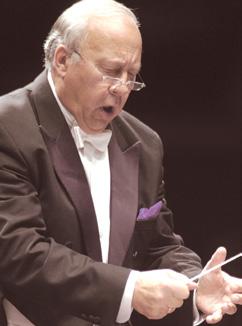


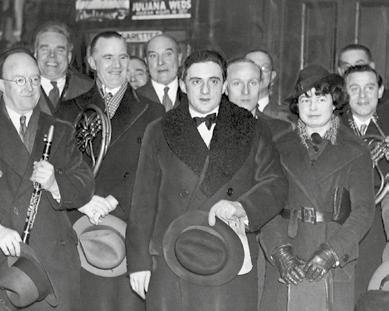

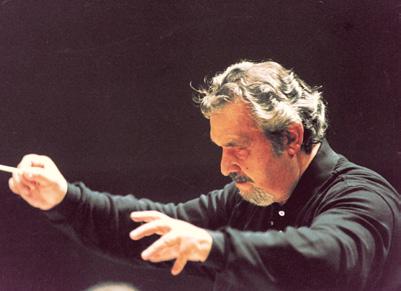

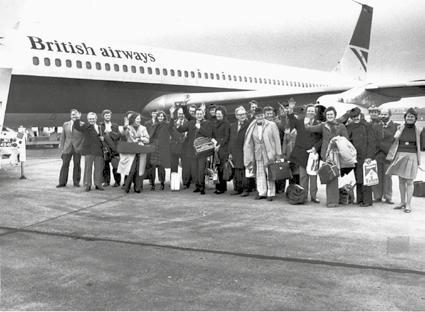
If you would like to discuss this further, please contact Torran McEwan, Individual Giving and Partnerships Officer, in the strictest confidence, at torran.mcewan@rsno.org.uk
To the many among you who have pledged to leave a gift already – thank you.
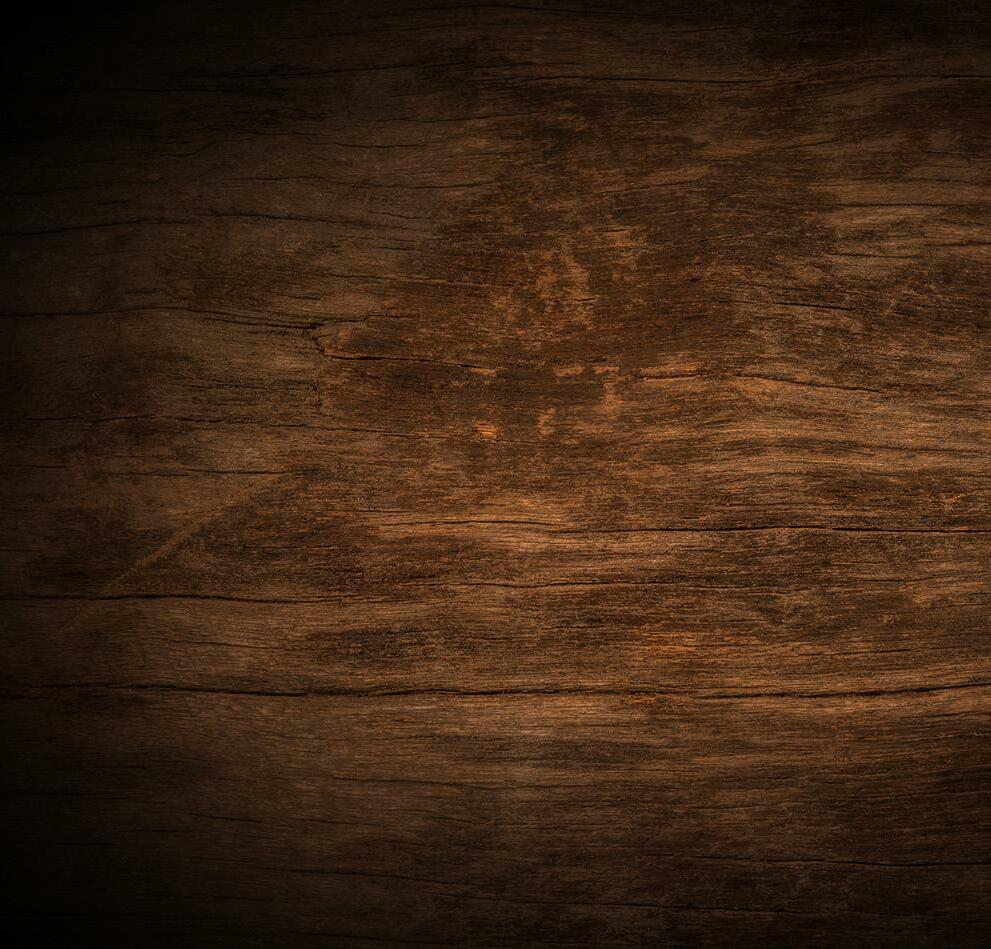

Charitable trusts and foundations have a distinguished history of supporting the RSNO, both on and off stage. From one-off donations for specific projects to multi-year funding for our flagship outreach initiatives, including the National Schools Concert Programme and Young Creatives, every grant in support of our work is truly appreciated. We are grateful to the following trusts and foundations for their generosity:
Aberdeen Endowments Trust
Alexander Moncur Trust
Alma & Leslie Wolfson Charitable Trust
Balgay Children’s Society
Barrack Charitable Trust
Bòrd na Gàidhlig
Boris Karloff Charitable Foundation Castansa Trust CMS Charitable Trust Cookie Matheson Charitable Trust Cruden Foundation
David and June Gordon Memorial Trust D’Oyly Carte Charitable Trust

Dunclay Charitable Trust Educational Institute of Scotland
Ettrick Charitable Trust Fenton Arts Trust Forteviot Charitable Trust Foundation Scotland Gannochy Trust Gordon Fraser Charitable Trust Harbinson Charitable Trust Hugh Fraser Foundation Iris Initiative
James Wood Bequest Fund Jean & Roger Miller’s Charitable Trust Jennie S Gordon Memorial Foundation
Jimmie Cairncross Charitable Trust John Mather Charitable Trust John Scott Trust Fund
JTH Charitable Trust
Leach Family Charitable Trust Leng Charitable Trust
Mary Janet King Fund McGlashan Charitable Trust MEB Charitable Trust Meikle Foundation Mickel Fund
Miss Jean R Stirrat’s Charitable Trust Mrs M A Lascelles Charitable Trust Music Reprieval Trust Nancie Massey Charitable Trust Northwood Charitable Trust

P F Charitable Trust Pump House Trust Radcliffe Trust Ronald Miller Foundation
R J Larg Family Trust Russell Trust
Samuel Gardner Memorial Trust
Scops Arts Trust
Scott Davidson Charitable Trust Solti Foundation
Souter Charitable Trust Stevenston Charitable Trust Tay Charitable Trust Thistle Trust Thomson Charitable Trust Thriplow Charitable Trust Tillyloss Trust Verden Sykes Trust WA Cargill Fund Walter Craig Charitable Trust Walter Scott Giving Group Walton Foundation Wavendon Foundation William Syson Foundation Zich Trust
We are also grateful to a number of trusts that wish to stay anonymous.
If you would like more information about our work and how you can make a difference, please contact Naomi Stewart, Head of Trusts and Projects, at naomi.stewart@rsno.org.uk


The Circle is a vital part of the RSNO family. Our community of music-lovers inspire and support us. Supporting us by joining the Circle will help us to bring music to so many people, from our Learning and Engagement programmes to our brand-new digital performances. As part of our community and family, we will keep in touch with our exclusive magazine Inner Circle, our Circle member webpage and invitations to special events throughout the year.
To find out more about joining the Circle please visit rsno.org.uk/circle or get in touch with Torran McEwan, Individual Giving and Partnerships Officer, at torran.mcewan@rsno.org.uk
To all our existing Circle members, thank you. Thank you for your unwavering support that allows us to continue sharing the joy of music.
Ms Catherine Y Alexander
Mrs A M Bennett
Dame Susan and Mr John Bruce Mrs Stina Bruce-Jones Stephen and Morny Carter Francesca and Eoghan Contini Mackie Sir Sandy and Lady Crombie Gavin and Kate Gemmell
Dr M I and Mrs C R Gordon Scott and Frieda Grier Judith and David Halkerston Iain MacNeil and Kat Heathcote Miss A McGrory Miss M Michie
Mr James Miller CBE Nicholas and Alison Muntz Meta Ramsay
Mr George Ritchie
Mr P Rollinson
Mr and Mrs W Semple Mr Ian Taft Claire and Mark Urquhart Raymond and Brenda Williamson
Mr Hedley G Wright
Mr Anderson
Mr W Berry
Mr Alan and Mrs Carolyn Bonnyman
Mr John Brownlie
Miss L Buist
Mr and Mrs J K Burleigh Mrs E Gibb
Mr I Gow
Mr J D Home
Mrs J Kennedy Mrs A Lamont
Mr I C MacNicol
Professor J and Mrs S Mavor Mrs McQueen
Mrs A McQueen
Morag Millar
Mr Miller Mrs A Morrison Graham and Elizabeth Morton Mr and Mrs David Robinson
Mr D Rogerson
Mrs Ann M Stephen
Mr Alistair M and Mrs Mandy Struthers
Mr and Mrs M Whelan
Concerto
Dr K Chapman and Ms S Adam
Mr A Alstead
Mr N Barton
Miss D Blackie
Mr L Borwick
Neil and Karin Bowman Dr C M Bronte-Stewart Dr F L Brown
Mr and Mrs Burnside Ms H Calvert
Mr A Campbell
Sir Graeme and Lady Catto Mr R Cavanagh
Myk Cichla
Dr J Coleiro
Ms R Cormack
Mr and Mrs B H Cross Christine and Jo Danbolt
Mr P Davidson
Mr J Diamond
Mr S Dunn
Mr C Ffoulkes
Mr and Mrs M Gilbert
Professor J R and Mrs C M Gray Mrs S Hawthorn Richard and Linda Holden Mr N Jack
Mr and Mrs S G Kay
Mr and Mrs W Kean Mrs M King Norman and Christine Lessels
Mr D MacPherson
Mr R G Madden
Mrs K Mair
Mr and Mrs Marwick
Mr S Marwick
Mr and Mrs G McAllister Ms M McDougall Mr Rod McLoughlin
Mrs B Morinaud Mr A Morrison
Dr and Mrs D Mowle
Dr C C and Mr K R Parish
Mr and Mrs D Pirie
Ms A and Miss I Reeve Mrs E Robertson Miss L E Robertson
Mr D Rogerson Ross family
Dr and Mrs G K Simpson Mr and Mrs A Stewart Mrs M Stirling Mr G Stronach Dr G R Sutherland
Mr I Szymanski
Mr and Dr Tom Thomson
Mr J B and Mrs M B Watson Mr and Mrs D Weetman Mrs Wigglesworth Mr and Mrs Zuckert
Sonata Ms S Ace Mr K Allen Mrs P Anderson Ms D Baines
Mr O Balfour Mr N Barton Dr A D Beattie Mrs H Benzie Mr R Billingham Dr and Mrs Blake Lord and Lady Borthwick Rev P Boylan John Bradshaw and Shiona Mackie Mr and Mrs Bryan Lady J Bute Mrs C Campbell Miss S M Carlyon Mr J Claxon Lady Coulsfield Adam and Lesley Cumming
Ms K Cunningham
Mr F Dalziel and Mrs S Walsh
Dr J K and Mrs E E Davidson
Mr and Mrs K B Dietz Mrs C Donald Jane Donald and Lee Knifton
Ms P Dow
Mrs P du Feu
Mr John Duffy Mr and Mrs M Dunbar Mr R M Duncan Brigadier and Mrs C C Dunphie Mrs E Egan
Mr R Ellis
Miss L Emslie
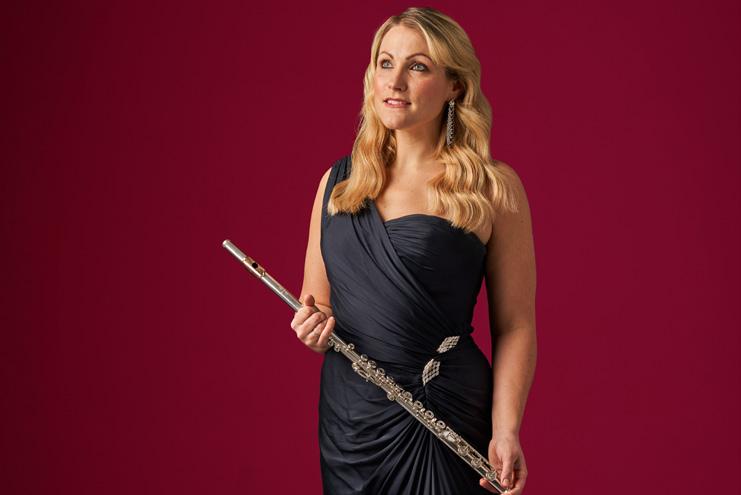
Mr R B Erskine
Dr E Evans
Mr D Fraser
Mr D and Mrs A Fraser Mr D Frew Ms J Gardner Dr P and Dr K Gaskell Mr W G Geddes
Mrs M Gibson
Mr D Gibson
Mr and Mrs A Gilchrist Mrs M Gillan
Mr R M Godfrey Mrs J K Gowans
Dr J and Mrs H Graham
Professor and Mrs A R Grieve Mr and Mrs G Y Haig Lord and Lady Hamilton Dr P J Harper Mrs I Harris
Dr N Harrison
Mr and Mrs R J Hart Mr D Hartman
Ms V Harvey P Hayes
Dr and Mrs P Heywood Bobby and Rhona Hogg Ms J Hope
Mr R Horne
Mr and Mrs F Howell Mr A Hunter Mrs A S Hunter
Professor R N Ibbett Ms J Incecik
Mr A Kilpatrick Professor and Mrs E W Laing Ms K Lang
Mr and Mrs J Lawson
G E Lewis
Mr R M Love
Dr D A Lunt
Mrs Lesley P Lyon
Mr and Mrs R MacCormick Mr D MacDonald
Mr and Mrs MacGillivray Lady Lucinda L Mackay
Dr A K and Mrs J C Martin
Mr and Mrs J Martin
Mr and Mrs D H Marwick Ms S McArthur
Mr G McCormack
Mrs L McCormick Mrs M McDonald Mr M McGarvie
Dr Colin McHardy Dr A H McKee
Mr Patrick McKeever Mr G McKeown Ms H L McLaren Mrs E McLean
Mr D McNaughton
Professor Mead

Mr and Mrs B Mellon Mr G Millar
Mr I Mills
Mrs P Molyneaux
Mr B Moon
Mr R Morley
Mr B and Mrs C Nelson Mr and Mrs K O’Hare Professor Stephen Osborne and Frank Osborne
Mr and Mrs K Osborne Dr G Osbourne
Ms S Park
Mr R Parry
Misses J and M Penman
Mr I Percival Dr M Porteous
Mr J W Pottinger Miss J A Raiker
Mr W Ramage
Mr M Rattray Ms F Reith
Mrs D A Riley
Dr and Mrs D Robb Mrs A Robertson Mr I Robertson Mr H and Mrs J Robson Ms A Robson Mrs E K Ross F Scott Mrs S Scott Mrs J Shanks Mr J A Shipley
Dr M J and Mrs J A Shirreffs Mr E Simmons
Dr Colin and Mrs Kathleen Sinclair Mr M Smith Mr M J Smith Mrs E Smith
Mr M A Snider
Dr and Mrs B Stack Mrs Lorna Statham Mrs T Stevenson Rev N and Mr R Stewart Mrs R F Stewart Mr and Mrs Struthers
Mr and Mrs B Tait Dr and Mrs T Thomson Mr C Turnbull Dr S Tweedie
Dr Morag Ward
Mr W Watters
Dr and Mrs T Weakley Mrs V Wells Mr G West Miss M Whitelaw Dr and Mrs D T Williams Mr D Woolgar
Mr R Young Mr C and Mrs L Yule
Thank you to all our members of the Circle, including those who wish to remain anonymous. Every one of you makes a real difference.





Dame Susan Bruce DBE
CHAIR
John Heasley
HONORARY TREASURER
Kat Heathcote
Linda Holden
Neil McLennan
Costa Pilavachi
Alistair Mackie
Phoebe Connolly
EXECUTIVE ASSISTANT
Nicola Shephard EXECUTIVE ASSISTANT (MATERNITY LEAVE)
Dr Ingrid Bols
PLANNING OFFICER
Michael Cameron
DRIVER AND DEPUTY STAGE MANAGER
Emma Hunter DEPUTY ORCHESTRA MANAGER
Ewen McKay
HEAD OF ORCHESTRA MANAGEMENT
Richard Payne
LIBRARIAN
Tammo Schuelke
ARTISTIC PLANNING MANAGER
Brodie Smith
CONCERTS ADMINISTRATOR
Craig Swindells
STAGE AND PRODUCTION MANAGER
Matthias Van Der Swaagh CONCERTS ASSISTANT
Xander van Vliet
LIBRARY AND ORCHESTRA ASSISTANT
Christine Walker CHORUS MANAGER
Andrew Stevenson
DIRECTOR OF LEARNING AND ENGAGEMENT
Brianna Berman PROJECT ASSISTANT
Samantha Campbell
HEAD OF LEARNING AND ENGAGEMENT (MATERNITY LEAVE)
Helen Brew
David Hubbard
Dávur Juul MagnussenCllr Edward Thornley
THE CITY OF EDINBURGH COUNCIL
Gordon Murray
RSNO COUNCIL
Baroness Ramsay of Cartvale
CHAIR
Ms Ruth Wishart
COMMUNITY AND WELLBEING COORDINATOR
Chrissie Johnson
PROJECT MANAGER
Rosie Kenneally
LEARNING AND ENGAGEMENT OFFICER (MATERNITY LEAVE)
Rachel O’Connor
CREATIVE ASSISTANT
Rachel Pyke
PROJECT MANAGER
Dr Jane Donald
DIRECTOR OF EXTERNAL RELATIONS
Lisa Ballantyne
PARTNERSHIPS OFFICER
Ian Brooke PROGRAMMES EDITOR
Rosie Clark
EXTERNAL RELATIONS ADMINISTRATOR
Jessica Cowley
MARKETING MANAGER
Carol Fleming
HEAD OF MARKETING
Constance Fraser COMMUNICATIONS AND MARKETING OFFICER
Torran McEwan
INDIVIDUAL GIVING AND PARTNERSHIPS
OFFICER
Jenny McNeely
HEAD OF INDIVIDUAL GIVING AND PARTNERSHIPS
Mirienne McMillan
SALES OFFICER
Graham Ramage
GRAPHICS AND NEW MEDIA DESIGNER
Dr Naomi Stewart
HEAD OF TRUSTS AND PROJECTS
Sam Stone
INFORMATION SERVICES MANAGER
Angela Moreland
CHIEF OPERATING OFFICER
Abby Dennison
FINANCE ADMINISTRATOR
Alice Gibson
FINANCE ADMINISTRATOR
Ted Howie
FACILITIES COORDINATOR
Lorimer Macandrew
VIDEO PRODUCER
Sam McErlean
SOUND ENGINEERING INTERN
Irene McPhail
ACCOUNTS AND PAYROLL ASSISTANT
Calum Mitchell
VIDEO PRODUCTION INTERN
Hedd Morfett-Jones
DIGITAL MANAGER
Susan Rennie
FINANCE MANAGER
Jade Wilson
FINANCE ASSISTANT
Royal Scottish National Orchestra
Killermont Street
The RSNO is one of Scotland’s National Performing Companies, supported by the Scottish Government.
David Robinson
Sophie Lang
Paul Philbert
Lorna Rough

